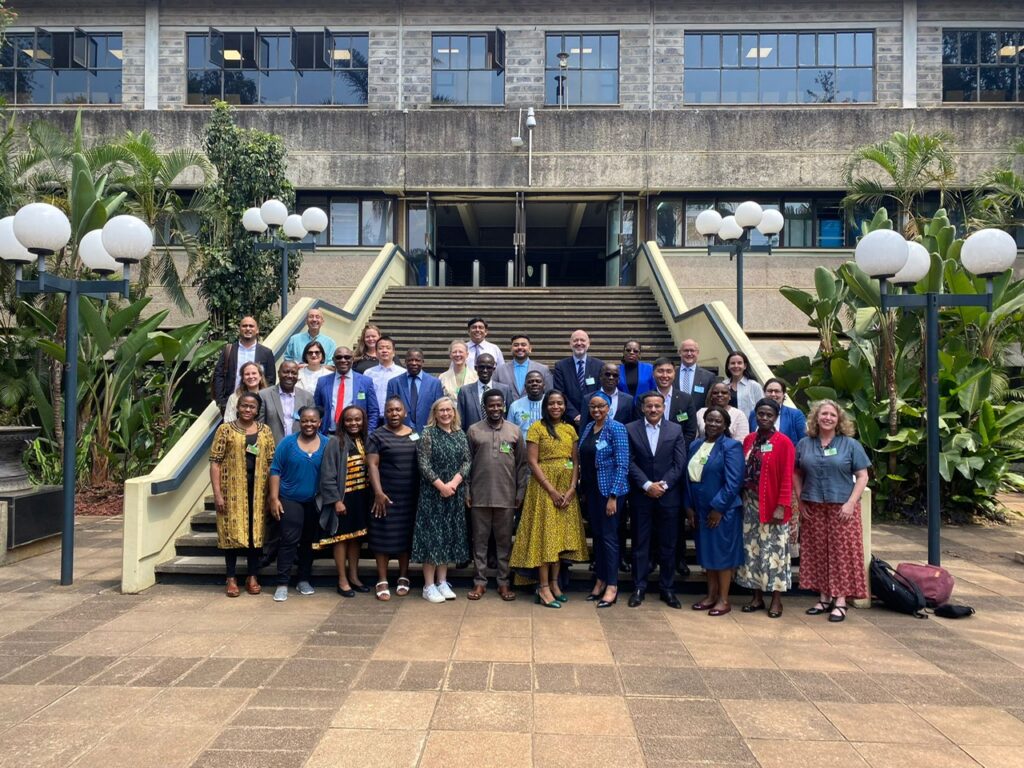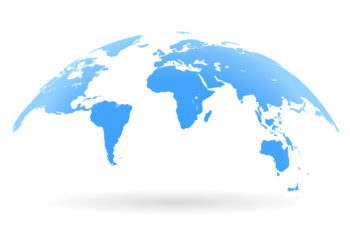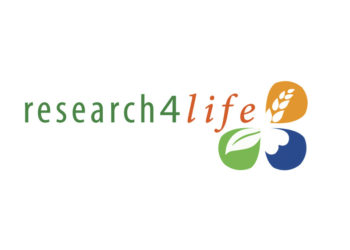Editor’s Note: Today’s post is by Daniel Dollar. Daniel is Associate University Librarian for Scholarly Resources at Yale University, a role that involves leading teams of colleagues in Access Services, Assessment & User Experience Research, Preservation & Conservation Services, Resource Sharing, and Scholarly Communication & Collection Strategy.
Twenty-three years ago, the World Health Organization and a coalition of publishers established Research4Life (R4L) with the goal of closing the knowledge gap between high- and lower-income countries. This partnership now encompasses five UN agencies (World Health Organization, the Food and Agriculture Organization of the United Nations, the United Nations Environmental Programme, the World Intellectual Property Organization, and the International Labour Organization), two academic research libraries (Cornell and Yale Universities), the STM Association, and more than 200 international publishers and technology partners. Today, more than 11,800 local, not-for-profit institutions across 125 Research4Life-eligible countries have access to an expansive collection of peer-reviewed scholarly content, comprising more than 200,000 open and subscribed resources.

Impacting Research Output
Research4Life, like any organization has had quiet periods and more active periods. Still, it has sustained its partnership over two decades with numerous stories of its impact from researchers, practitioners, and students. A recent study by World Intellectual Property Organization, the University of the Bundeswehr Munich, and the German Economic Institute highlights this impact quantitatively, noting a 75% increase in scientific output and a 20% rise in involvement in international clinical trials from Research4Life institutions since the launch of the partnership in 2001. In addition, Research4Life access positively impacts gender equity in science, increasing the share of women authors, their collaborations, and the impact of their publications, according to preliminary research in a forthcoming WIPO working paper.
Access is Not Enough
This lens on impact only paints part of the story. Equity in scholarly communication is much more complex, reflecting the complexity of scholarly communication itself. The Research4Life partnership has responded to user requests by engaging in targeted capacity development efforts with in-person and online learning opportunities to foster the use of Research4Life-provided content and tools, as well as to develop authorship skills. By no means is Research4Life alone in offering skills-building courses in research communications and information literacy. Global parity in this area is still an aspiration goal for many organizations. Beyond capacity development, Research4Life has also worked to expand its user support services, outreach and awareness, content management, and technology support — efforts that have been advanced primarily by in-kind contributions of time and resources by Research4Life partners. Equity in anything can only be achieved by listening to the communities in question. For Research4Life, our user community highlighted the need to transform from a simple focus on one-way donation to enabling reciprocal knowledge exchange between low- and high-income countries. The partnership’s new strategic direction is best reflected in our Country Connector program, which develops country-level coordinators for targeted training, outreach, and network building, not just for Research4Life’s core activities, but for the country’s full research and scholarly communication environments.
The Power of Collaboration
Here are some highlights from the work of Research4Life Country Connectors that demonstrate the power of collaboration:
- South to South Collaboration: Country Connectors in Bhutan and the United Republic of Tanzania are collaborating on a grant proposal to develop an institutional repository for Bhutan.
- Collaboration with Universities: In Senegal, our Country Connector is working to incorporate Research4Life into research syllabuses in Senegalese universities.
- Collaboration with Government: In the Republic of Moldova, our Country Connector presented on Research4Life to a group of government and higher education leaders as part of a Science Day symposium organized by the Ministry of Education & Research.
- Collaboration with Librarians: In Liberia, our Country Connector undertook capacity-building events with the Liberian Library Association and colleagues at several Liberian higher education institutions.
- Collaboration with National Research & Education Networks: Research4Life embarked on an authentication expansion project with Ubuntunet Alliance to allow Research4Life to authenticate users via institutional sign-in.
- Collaboration with Regional Journals: Through a partnership with the Directory of Open Access Journals (DOAJ), we have undertaken publisher training in English, French, and Spanish. Certificates from the first English training sessions in 2023 were issued to 50 publishers from low- and middle-income countries, one of whom has already successfully applied to have their journal listed in DOAJ, meaning this publication is available with the full corpus of content through our Discovery Portal.
Awareness Challenges
Despite the progress to date, awareness and engagement gaps still persist, not just for Research4Life, but also for other programs working in this equity space. For Research4Life, the gaps are partly due to insufficient and unstable funding. A lack of awareness still exists in our countries and institutions after more than 20 years. It is disheartening to see senior researchers in Research4Life-eligible countries declare their frustration at not having access to materials available to their high-income country counterparts simply due to lack of awareness. Frustratingly, our efforts to ramp up visibility, training, and outreach result in only incremental gains. Greater engagement with Ministries of Education may be the key to unlocking awareness and influence. However, we have no program yet to drive forward this activity and no established networks through which to work. Our work with the Ukrainian Ministry of Education and Science exemplifies how this could work with free access agreed by the publishers in 2022 when the war broke out with a subsequent doubling of institutional access and strengthening user support from Research4Life’s Ukraine Country Connectors.
Financial Challenges
Equity can at times feel like an impossible goal when funding is uncertain. While Research4Life receives millions in value in the form of in-kind support, the annual cash budget of $200,000 derived from middle-income country fees is insufficient for the large scope of work. With the frustration of lack of funds to help us do more, we established Friends of Research4Life, a U.S.-based 501(c)(3) non-profit dedicated to fundraising for Research4Life activities. Through Friends of Research4Life, we have received some new donations, primarily from publishers, that have kickstarted our Country Connector work. However, achieving transformative change requires sustainable funding, something Research4Life does not have today!
Is Equity in the Publishing Industry Viewed as a Mirage?
The Open Access movement and Research4Life arose in the early 2000s when the growing shift from print to online content sparked new opportunities to address equity issues in publishing. Research4Life, with traditional publishers as key partners has generated skepticism and in some cases outright hostility, from various quarters in scholarly communication. This has been reflected in some philanthropic organizations’ refusal to engage in funding discussions with Friends of Research4Life. Other advocates of a perfectly equitable scholarly communication world have seen Research4Life as a way of avoiding or delaying that perfect future. What publishers and other partners in Research4Life are working on right now is a leveling of the inequitable playing field from which researchers and others in higher income are still benefitting. It is not incompatible for some groups to work for an ideally equitable future while others smooth out the current situation.
While the Open Access movement has made impressive gains, it is an ongoing effort. The shifting of costs from access to publishing, as reflected by author-pays Gold OA, has shifted equity issues but not eliminated them. While the development of Diamond OA and other related initiatives holds promise, the scale of our global challenges means we have to address today’s information needs with a variety of approaches that involve everyone in scholarly communication. Research4Life takes a practical approach to maximize the benefit to our community of users in low- and middle-income countries. To build true equity, we must do all we can to lower barriers to the publication of research outputs and foster participation in all aspects of the publication lifecycle to ensure greater representation from scholars in lower-income countries as authors, reviewers, editors, and publishers.
Call for Action
At the midpoint of implementing the Sustainable Development Goals, the UN has sounded the alarm, reporting that, “the world is falling short of meeting most of the goals by 2030,” with “a concerning proportion of targets that are either progressing too slowly or regressing” (UN, 2024). This has led Antonio Guterres, Secretary-General of the United Nations, to call for a “Rescue Plan for People and Planet.” The success and, more critically, the unrealized potential of Research4Life and similar initiatives should serve as a call for increased backing of the equity goals that are at the heart of Research4Life’s work. To enhance engagement from academic libraries and librarians, we are forming a Research4Life Academic Alliance to foster connections between librarians in higher- and lower-income settings and with different strengths. The effort is still at the idea phase; we would welcome thoughts from readers on what such an alliance might look like and if you wish to get involved. We are delighted to have support from our Partners through at least 2030. We will also have a presence at this year’s Frankfurt Book Fair.
Equity is a Goal for Everyone!
Together, by leveraging increased collaboration, we can dramatically accelerate progress toward an inclusive, equitable scholarly landscape. This empowerment of the global research community is essential as we tackle the world’s great societal challenges, unlocking the full potential of human ingenuity and creativity.
Discussion
6 Thoughts on "Guest Post — Equitable Scholarly Communication: Realistic or Idealistic?"
Thank you for this excellent post. Research4Life is cited in the SDG Publishers Compact Fellows’ Top ActionTips: Promoting Equity in Research and Publishing. ScienceOpen Research. 2024. DOI: 10.14293/S2199-1006.1.SOR-.SDG.01
Thanks, Gerald. I appreciate you citing this document and its reference to R4L. The SDG Publishers Compact is an inspiring statement, and I would point out to readers that one of its commitments is “Dedicating budget and other resources towards accelerating progress for SDG-dedicated projects and promoting SDG principles.” I know publishers are taking steps to address equity issues; it is just that we can do more!
Thank you for this comprehensive overview Daniel! The Elsevier Foundation has been a proud supporter of the Country Connectors program for the past 3 years and we hope that many more funders and publishers will join us in supporting this critical research capacity building program for Research4Life. Only by empowering and supporting localized training expertise can we make real strides in global research equity.
Thanks, Ylann. I commend the leadership of the Elsevier Foundation, as your support has been essential for the launch and initial development of the Country Connector program. We now have connectors in 12 countries and are looking to continue growing the program, which has had such a positive impact. To maintain Country Connectors, we will need $500,000 in 2025. We are seeking more partners to share Elsevier’s vision and generosity for this program.
Dear Daniel Dollar,
I read your article with great interest, as I have been a significant beneficiary of Research4Life. Coming from Kenya, which is now classified as a middle-income country (having previously been considered low-income), I have firsthand experience of the impact Research4Life had in the early 2000s, particularly in East Africa. During that time, I benefited immensely from training and awareness initiatives, and in 2014, I was honored as one of the Unsung Heroes for my efforts in educating learners. However, I’ve noticed that Research4Life’s influence seems to have diminished in recent years, largely due to challenges arising from some publishers withdrawing their publications. Additionally, many journals now require access via IP addresses, while Research4Life continues to rely on username access. With the rapid technological advancements, user behavior has shifted significantly; many users now seek prompt feedback rather than procedural responses, an area where Research4Life appears to have lagged. I believe, as you suggested, that it is essential to assemble a team of experts from all middle- and low-income countries to discuss these issues collaboratively. For Research4Life to regain its former glory, it needs to adopt a user-centered approach rather than a management-focused one. I have extensive experience in collaboration and partnership, and I would be happy to assist in any way I can. However, I am in Hungary for my studies.
Best regards
Hi Fredrick,
Thank you for your comments in bringing a user-focus to this discussion.
Yes, some publisher adjust their country offers (meaning whether they offer their content in a particular country). We are transparent in that regard, and we recognize that this visibility is important to the users. This is not something Research4Life as a whole can impose restrictions on since the choice of publishers to participate at all is a voluntary one. We do offer encouragement for publishers to offer in as many countries as possible, and we’ve seen some strides in that area, particularly in the least developed countries.
The technological environment and user experience were elements identified in our current strategic plan and we have been getting user input in the challenging balancing act of matching user expectations from technologically advanced institutions while maintaining workable solutions for the smallest and least technologically sophisticated institutions. This is not an easy fix, particularly with limited funding to keep operations going.
Your recommendation for a user-centered approach resonates perfectly with Research4Life’s current directions – and there is a User Group where these issues are being discussed, including how to identify and address barriers to the user community’s engagement in Research4Life’s directions and governance.
For the readers’ benefit, I am including a link to your Unsung Hero story: https://www.research4life.org/blog/embracing-research4life/
I wish you the best in your continuing studies.



